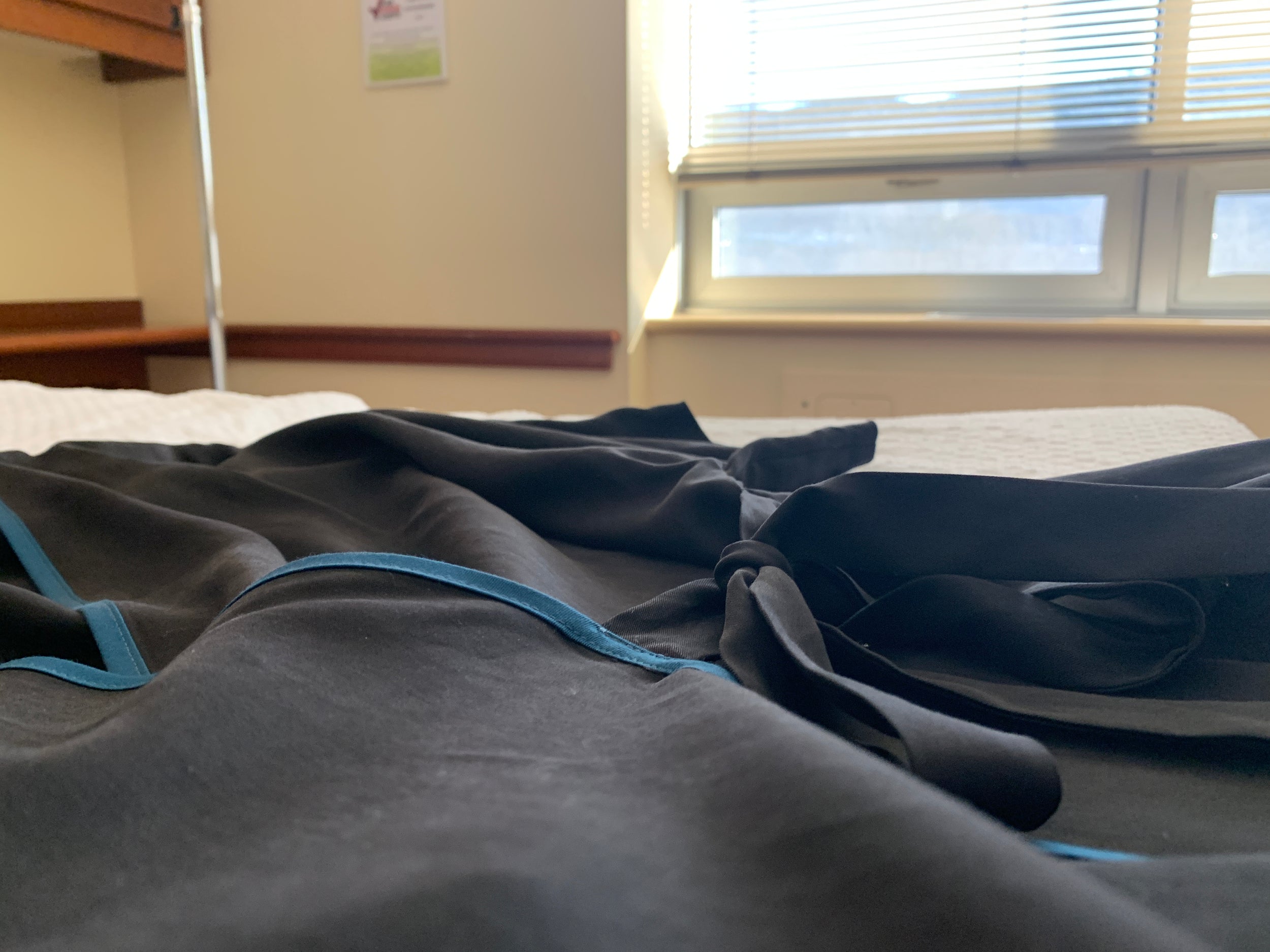
Tencel - not all lyocell is created equal
Building a company in 2020 is a radically different enterprise than it would have been a decade ago. We are finally coming to terms that our species is on a precipice and blind consumerism could well be our end. We are also at a place where the building blocks are becoming more and more available to avoid the pitfalls that got us into this mess to begin with. From inception, Janesi Comfort's story is being written with a human-first sustainable ethos.
Every decision at Janesi Comfort comes down to one consideration; would this decision have made Jo, founder Mike McGregor's late wife, more comfortable during her hospitalization? It is important to know more about Jo before being able to answer that though. Having a photographer for a husband she definitely appreciated quality and detail. She always taught our children to buy the right thing once rather than the wrong thing twice. But the vast majority of her life was built around the idea of leveling life's playing field and making sure that everyone has the ability to strive. Her field was education and the school she founded in the South Bronx is still a top performer but the leveling mentality was pervasive in all her thinking. Leveling a playing field means making sure the youth have the same opportunities as their parents. That the world they inherit will be as vibrant and green as the generation they will replace. It means transparency so you can test for yourself what you are being told.
Over the next series of blog posts we are going to take a deep dive into what these means.
First off; Fibers.
We started by defining and eliminating the problems. For us this meant they must not be derived from oil, parch our land, drain our aquifers and pollute our rivers. Then we listed what we wanted; Softer than silk, anti-microbial, temperature regulating, and sustainable. Shouldn't be hard, right?
In speaking with patients at the ward of our partner hospital we became aware of how many people suffer from allergies to chemicals and treatments used in industrial clothing. Another major complaint to our surprise was that more people are hot than cold. Polyester and it's blends failed the oil based test. Organic cotton is nice, we might make a more structured garment with it in the future, but it uses a ton of water and land and did not have the hand we are after. Animal based products proved too warm and unsustainable. Then we discovered lyocell. Lyocell is a plant-cell based technology that uses a chemical to break down fibrous pulps into fine fibers that are everything we were looking for; super soft, naturally anti-microbial, green, and abundant.
But ecologically and qualitatively not all lyocell's are equal. Lenzing is an Austrian firm that tightly controls the brand name Tencel. In order to get Tencel certification, which requires laboratory testing, the fibers in your garment must be traceable back to where they were grown. The entire supply chain is transparent. It is obtained from farmed eucalyptus trees - no old growth forests, gmo's, irrigation, or pesticides are used. They have earned Forest Stewardship Council (FSC) certification that the products come from socially and environmentally responsible forests. The European Program for the Endorsement of Forest Certification has also endorsed Tencel's farming practices as sustainable. Tencel eliminates the negative environmental impacts of traditional fiber processing, using new sustainable technologies.
Rayon another common lyocell, generates highly polluting air and water emissions, uses catalytic agents containing cobalt or manganese, and creates a strong unpleasant odor.
Tencel has some clear advantages with it's chemical processing. The chemicals used to produce it are nontoxic. In addition, the ground pulp used in Tencel is processed in a closed-loop method in which the solvents are recycled with a recovery rate of 99.5%. The tiny amount of remaining emissions is decomposed in biological purification plants. Because of the nature of the material, the processing never requires bleach. This overall method of manufacturing fabric was awarded the “European Award for the Environment” by the European Union.
TENCEL® fabric carries the Oeko Tex 100 certification, an international standard developed in 1992 to certify that it contains no harmful substances. Tencel also has been awarded the European Community Eco-label flower for products and services with reduced environmental impacts.

